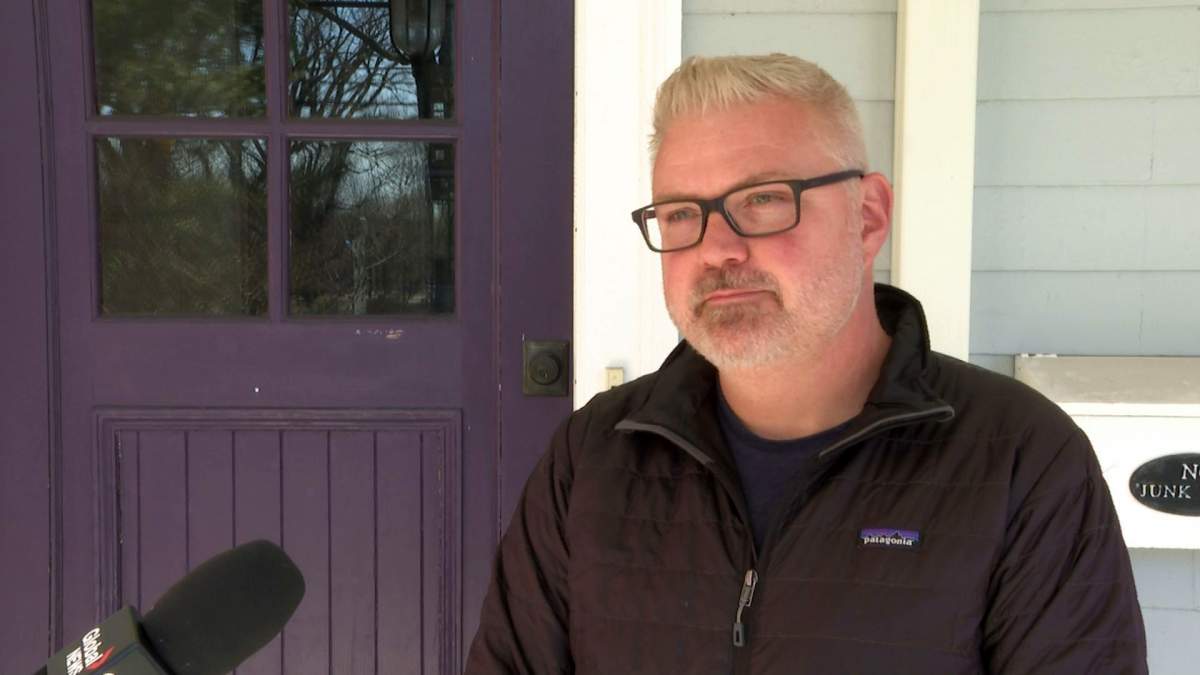A recent request from the Halifax Chamber of Commerce to have a hybrid work model requiring downtown municipal employees to be in the office three to four days a week isn’t sitting right with some critics.

One recommendation in the chamber’s municipal pre-budget submission for the 2023-24 year said having more people working downtown would “help stimulate the downtown area” as it recovers from three years of COVID-19.
Some downtown businesses that rely on the lunch-hour crowd told Global News they’ve been struggling with fewer customers, as working from home becomes more normalized.
Currently, Halifax Regional Municipality employees whose roles allow for a flexible work model can request to work from home up to three days a week.

While some local downtown restaurants are in favour of the chamber’s recommendation, many people on social media have pushed back against it.
“That’s ridiculous. Great way to ask for mass retirements,” one person said on Twitter.
“How about making it easier and cheaper to patronize downtown?” said another.
A screenshot of Global’s initial article even made its way to the front of the “antiwork” Reddit page, where it was posted with the caption: “How about no?”
Coun. Waye Mason, whose district includes the downtown area, said in an interview Thursday that he understands where the chamber is coming from, and recognized that businesses downtown are still struggling from the impacts of COVID-19.

“But we also have to think about the fact that HRM employees, and all employees … the way they work has changed,” he said. “We’re seeing people working from home more across all sorts of different industries, and there are good reasons for that.”
Mason is unconvinced the chamber’s recommendation will make a material difference in the downtown economy.
“If you’re at home, you might go out and have lunch anyway, and if you’re downtown you might brown-bag it,” he said.
Mason said cities have changed in the last few years, and the Monday-to-Friday downtown crowd isn’t the same as it once was.
“Businesses will have to change, the business mix downtown will change. Some will succeed and thrive, and some will find that it’s harder to succeed and they might close,” he said. “We’re going to continue to support, trying to get people downtown.”

Get daily National news
Numbers ‘don’t make sense’
Shawn Cleary, the councillor for Halifax West-Armdale, said having more workers downtown, “on the face of it, sounds great.”
“The issue I have,” he told Global News, “is (the chamber’s) numbers don’t make sense.”
In its initial recommendation, the chamber said Halifax has roughly 3,600 to 5,000 employees. But HRM spokesperson Klara Needler said earlier this week that there are just under 800 flexible work agreements in place, less than 50 per cent of which are for employees who work downtown.
So in terms of who the chamber’s recommendation would apply to, “we’re only left with a few hundred workers,” Cleary said.
“If they can do the job that they’re employed to do, and they can do it as a mix from home and from the office, then I don’t see why we would force them into an office,” he said.
Cleary added that while some people working downtown can walk to the office, others have to drive in from more suburban areas, contributing to pollution.
“That’s a lot of greenhouse gas emissions just because someone wants you to buy a lunch downtown,” he said.

Patrick Sullivan, president and CEO of the Halifax Chamber of Commerce, estimated earlier this week that the change would lead to $2 to $4 million in increased spending downtown — but after the actual number of downtown municipal workers was clarified, he revised that number to $500,000.
While Sullivan admitted he “did misspeak” when he gave the initial 3,600-5,000 number of municipal employees, he said in an interview Thursday that he believes the point still stands.
“Our concern is the vibrancy of our downtown core. We lost that vibrancy during the pandemic, we’d love to see it back,” he said. “There are many businesses that have people returning to work more often, I would encourage the municipality to do that.”
He said he encourages all municipal employees who have flexible work agreements “to perhaps increase the number of days that they’re in the office, whether it’s to spend money in downtown, or downtown Dartmouth, or Bedford, or Sackville, to support the businesses and to make efficient use of the buildings that they’re currently paying rent for.”
Sullivan also said he has about 15 staff members at the chamber’s headquarters in Burnside, who mostly work in the office and are “spending money in Burnside.”
He noted the chamber made a number of other recommendations to the municipality as well in its pre-budget submission.
“It talks about a lot more than a hybrid work environment, it talks about more efficient spending, it talks about longer-term plans that the municipality should be thinking of,” he said.
“There’s a lot to talk about in this vibrant growing area of Halifax.”
Revitalizing downtown Halifax
In an interview, Halifax business professor Ed McHugh said the chamber’s request is an “interesting situation.”
“What you have is one organization almost telling another organization how to manage its employees. And so on the very surface, that just doesn’t feel right,” he said.
However, McHugh noted that the Chamber of Commerce must work in the best interests of its members, some of whom are struggling due to a lack of business downtown.
He said employees across the country are fighting the return to the office, as the pandemic helped people realize “there are a number of things in the world of work that people can do now from home, just as efficiently.
“And once some employees got a taste of that, and managers have very satisfied employees who are quite happy to do that, it does add to employee retention,” he said.
McHugh said in order to work from home, employees must show they can work in an unsupervised environment.
“If you’ve got a good, competent, mature employee who can do that, and the job can be done just as efficiently from home, I see no reason why employees can’t work from home,” he said.
Not having a good reason to force staff back to the office, he said, could create problems for employers. “I think that employee then starts to look around.”

McHugh said it will be interesting to see if the city accepts the chamber’s recommendation.
“I’m sure there are people inside the municipality who right now feel slightly insulted that they’ve been told how to manage their employees,” he said.
“You do want to see your municipality and your chamber … getting along, so I think behind closed doors, there’s going to have to be some conversations to get to a middle ground on this.”
He said there are other ways to boost the downtown economy, such as adding more housing and improving transit to move people to the city core more efficiently.
Lars Osberg, a professor in Dalhousie University’s Department of Economics, agreed.
“The whole role of the downtown in urban areas is now up for grabs in a way that it just wasn’t before COVID,” he said. “Maybe we ought to be thinking more about a reallocation of activities, more downtown living, and more suburban offices.”
For instance, Osberg said it might be possible to convert empty office buildings into apartments.
“We do have a housing shortage right now, so empty buildings that can be converted to a better use are probably a good idea,” he said.
Sullivan, the chamber president and CEO, said he supports the idea of converting unused office space to housing so it can be put to “better use.”
“We support a vibrant downtown, we want more people downtown,” he said. “If that means they’re working downtown, great. If that means they’re living downtown, that’s also great.”
Osberg said it might be a tough ask to get employees back in the office, as there are “lots of benefits” for employees working from home — time and money saved from not having to commute, and the ability to take care of things around their homes and care for children.
And he noted that when unemployment rates are relatively low, like they are now, that shifts the balance of power at the workplace.
“If it’s jobs chasing people, then people have choices,” he said.
— with files from Vanessa Wright














Comments